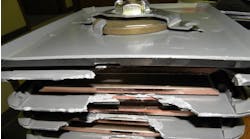Photo credit: Nik01ay/iStock/Thinkstock
It’s amazing how small changes in work practices can produce huge increases in both quality and output. Increased productivity is on the minds of many managers, because it results in higher margins and greater competitiveness at the same time.
But the mentality of some managers often is to put that burden on the workers. “My people are inefficient, I need to fix them.”
Consider addressing these drivers of worker inefficiency, rather than blaming the workers:
- Excess forms and paperwork. How much of this actually gets read, much less used, once it’s turned in?
- Unnecessary or low-value tasks. Try to eliminate any tasks that really aren’t worth doing. A comprehensive review and analysis of work flows could be a shocker in this regard; when’s the last time that was done?
- Paper-based “paperwork” instead of simple electronic reporting and data transfer. Complex forms and reports that must be physically handled by multiple people are real time hogs.
- Outdated test equipment. It’s great that John has taken such good care of his circa-1995 DMM that it still works fine in the field. But maybe it’s time to move on to one that has wireless communication or some other time-saving features.
- Poor materials planning and supply chain. How many times have crews had to adjust to problems with materials? Do you even know the number? If not, why not? If so, what are you doing about it?
Sponsored Recommendations
Sponsored Recommendations
Sponsored
Sponsored




